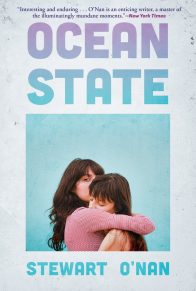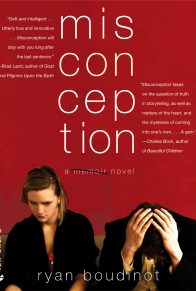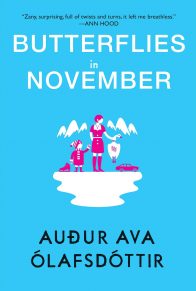1. The Anniversary presents a dark psychological mystery in the aftermath of Patrick’s death. As the investigation of his fall progresses, Bishop reveals layers of truth about the events leading up to his death. How did your perception of J.B.’s role in Patrick’s death change as you read? Do you think J.B.’s perception of her role in his death also changed?
2. Though we know J.B. is a British citizen, her racial and cultural background is left ambiguous until halfway through the book (p. 225). How, if at all, did learning that J.B.’s father grew up in India change or complicate your reading of the book? How is it important to understanding her character?
3. J.B.’s books reflect events from her own life, even as she adamantly maintains her writing is fictional. Her memories blur together with scenes she has written. Patrick’s catastrophic disappearance is even compared to similar events from J.B.’s writing. Talk about the lines between fiction and reality. Are J.B.’s books fictional? How do they inform events in her life, and vice versa?
4. The disappearance of J.B.’s mother in her childhood looms large throughout the book and in J.B.’s writing. Discuss the developments of this storyline in the book’s final chapters.
5. The Anniversary is interspersed with detailed scenes from J.B.’s childhood, especially the moments surrounding her mother’s disappearance. Talk about these scenes. How did they help you understand J.B. as an adult? How did you read them in conversation with the events unfolding in the novel?
6. How does Patrick’s role in J.B.’s writing career affect J.B.’s self-concept? Her concept of their marriage?
7. How do you think Patrick’s perception of J.B. changes over the course of their marriage? What power dynamics did you see at play between them over the years?
8. Throughout the first half of the book, we only know the main character by the initials J.B. It isn’t until halfway through the book, when she travels to stay with her sister’s family in Australia, that we hear her referred to by her first name: Lucie. What is the significance of this shift? What do the two names—J.B. and Lucie—tell us about her?
9. When reflecting on the inadequacy of her Japanese language skills to help her navigate the aftermath of Patrick’s disappearance, J.B. observes, “All of the language I had was about desire, about want—the language of the tourist . . . I knew no words for repulsion, for dislike . . . I never learnt how to refuse something” (p. 88). How might this observation speak not only to J.B.’s knowledge of Japanese, but to her struggle to assert her own voice, agency, and desire throughout the novel?
10. As she prepares to speak at a reading, J.B. reflects: “How I longed to be treated as Patrick was . . . to be granted without question that kind of artistic authority that let him say and do as he pleased” (p. 123). How does gender affect “artistic authority”? In what ways are male artists celebrated for doing “as they please”? How does gender influence your own ability to command authority; to do as you like?
11. J.B. describes the stylistic departure of her most recent and successful novel from her previous work: while she used to write in “unisex” sentences, she now sees “that the unisex sentence is just the male sentence assuming its universality” (p. 124). Her new book, written in her “very own sentences, uninherited and wholly inhabited at last . . . [made her] into the woman writer that, for one reason or another, [she] had long thought [she] ought not to be” (pp. 124-125). Talk about this. What does it mean for sentences to have a gender? To be “fully inhabited”? What made it difficult for J.B. to reach this point “at last”?
12. J.B. notes that “In a story . . . the feeling of not knowing what happens next is often a thing of pleasure—the cornerstone of our delight” (p. 163). Does this describe your experience of reading The Anniversary? During which moments in the story did you feel least certain of what might happen next?
13. Talk about Ada, J.B.’s publisher. She sticks by J.B. unquestioningly both professionally and personally. What makes Ada such a loyal friend to J.B.? Is their friendship reciprocal?
14. Do you think J.B. is a reliable narrator? If there were parts of the book where you felt she was unreliable, what made you think she wasn’t telling the truth?
15. J.B. reflects: “After all, a girl and later a woman is taught not to become too familiar with her own strength, not to invest in it, not to identify herself by way of it. Of course I didn’t know what I could do” (p. 351). What do you think of this idea? Do most girls and women not know what they are fully capable of? How have you been taught how to, or taught not to, invest in your own strength?
16. J.B. and her sister, May, seem by turns close and distant, both similar and worlds apart. How do J.B. and May relate differently to their shared past? To motherhood? To family?
17. The Anniversary, and J.B.’s life, takes place across continents—England, Australia, New York, Japan, and even the unnamed country where her mother disappears. The book’s most pivotal event—Patrick’s death—happens on a moving cruise ship. How does geography, and physical movement through space, play a role in the story? How do the book’s multiple settings affect its tone and mood? How do they delineate chapters in J.B.’s life?
18. In one of the book’s more surreal scenes, J.B. is questioned by a Japanese investigator after Patrick’s disappearance and goes into detail about having sex with Patrick the afternoon of his fall, though it is unclear to both J.B. and the reader exactly how much she is saying out loud. What did you make of this moment? Why do you think Bishop chose to include it?
19. How does the Author’s Note that J.B. includes in her novel, and the ensuing conflict, encapsulate the central conflicts in Patrick and J.B.’s marriage? In J.B.’s life?
20. What is J.B.’s relationship to motherhood, especially as it relates to her ambition as an artist, and how does it change over the course of the novel? What did you think of these changes?
Suggestions for further reading:
Asymmetry by Lisa Halliday
Trust Exercise by Susan Choi
The Wife by Meg Wolitzer
The Mars Room by Rachel Kushner
Fates and Furies by Lauren Groff
Monogamy by Sue Miller
Trust by Hernan Diaz














